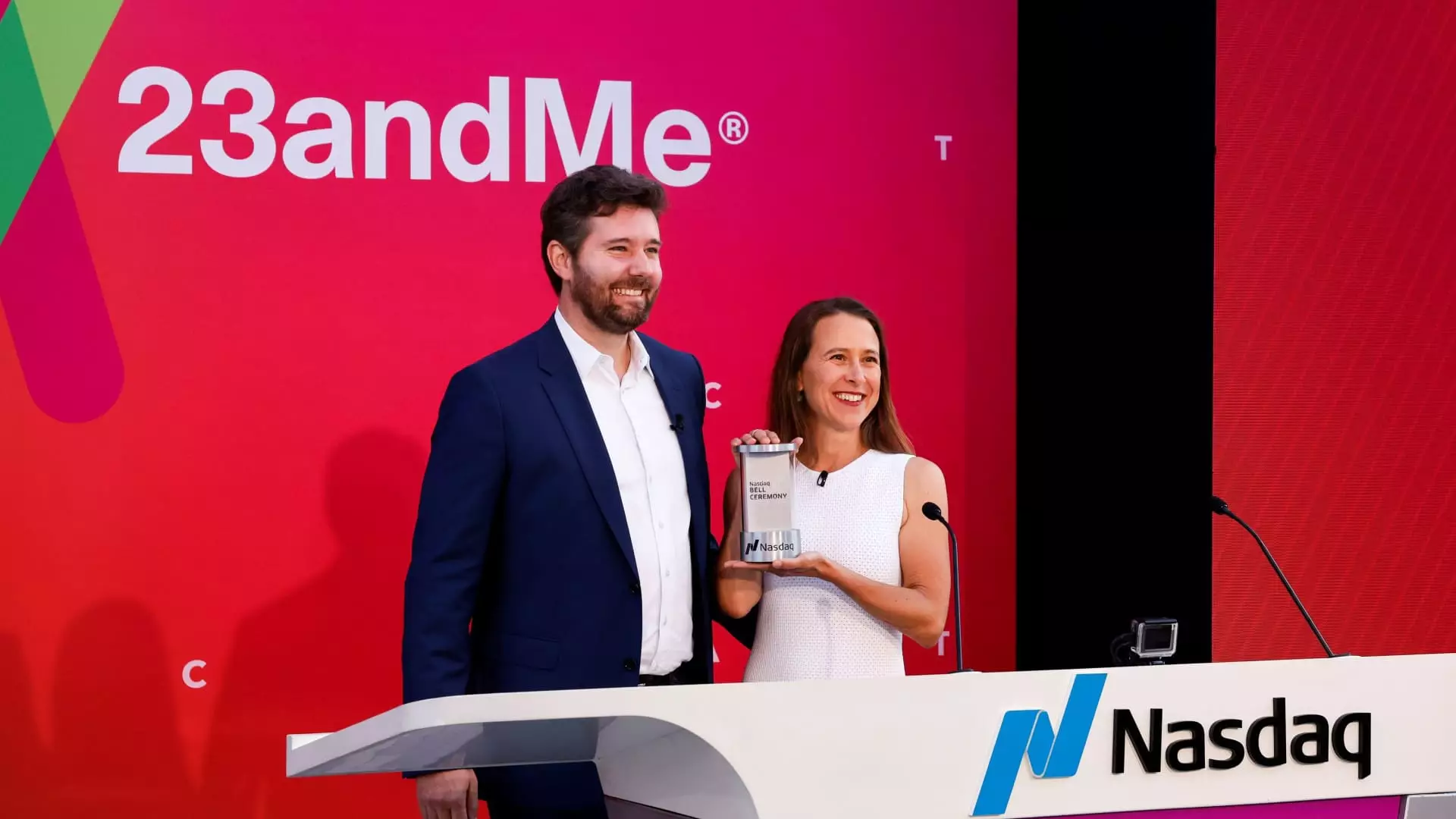Once hailed as a pioneering force in the world of genetic testing, 23andMe has faced a dramatic and alarming decline, losing a staggering 98% of its initial $6 billion valuation. Following the resignation of all independent board members in September 2023, the company now teeters on the brink of delisting from the Nasdaq. This scenario serves as both a cautionary tale and a revealing case study into the complexities of modern entrepreneurship, particularly within the biotech sector.
The company was founded in 2006 with the revolutionary ambition to democratize access to genetic information, transitioning from an exclusive domain to one that is directly accessible to consumers. Through effective marketing strategies underpinned by celebrity endorsements and strong financial backing, 23andMe successfully positioned its test kits as affordable and accessible alternatives to those offered by competitors, such as Ancestry.com. Unlike its rivals, however, the company sought to harness its extensive genetic database for drug discovery efforts, indicating a dual approach to revenue generation—both consumer-facing genetic testing and partnerships with pharmaceutical companies.
The launch of 23andMe’s public offering in 2021 brought renewed hope and optimism, with the company valued at approximately $3.5 billion. At this juncture, CEO Anne Wojcicki expressed her eagerness to leverage a burgeoning market for therapeutics alongside the continued consumer interest in genetic testing. However, the tides of fortune quickly shifted due to external economic factors. The rising interest rates led to a tightening of available capital, creating significant challenges in securing funding. Compounding this issue was a downturn in sales, which signaled that the market for personal genomic testing may have reached its saturation point.
In an attempt to mitigate declining revenues, 23andMe introduced a premium subscription model in 2020. Unfortunately, this initiative did not garner the desired traction, and by the end of the fiscal year in 2023, the company reported a staggering net loss of $312 million. Investors and analysts began to express concern as the company’s share price fell below the critical threshold of $1 by September 2023—a clear indicator of a failing business model.
As if financial woes weren’t enough, 23andMe also contended with escalating privacy concerns regarding its genetic database. In October 2023, news broke that hackers had gained unauthorized access to the personal information of nearly 7 million customers, raising alarms about the company’s ability to safeguard sensitive data. This incident further eroded trust among consumers and investors alike, marking a turning point in the public perception of the company.
In response to inquiries regarding the potential for privatization or sales of the company, Wojcicki expressed a firm commitment to maintaining customer privacy and the integrity of the company’s policies. Despite submitting a proposal to take the company private in July, the rejection by a special committee underscored the underlying friction within 23andMe’s leadership. The resignation of independent directors in September illuminates deeper strategic disagreements regarding the path forward for the business.
Looking ahead, 23andMe faces a pivotal challenge: a crucial deadline looms on November 4, 2023, compelling the company to elevate its share price and replenish its board structure if it hopes to retain its Nasdaq listing. The fallout from recent decisions has cast a long shadow over its future prospects, raising questions about the company’s viability in a rapidly changing industry landscape.
In summation, the narrative of 23andMe encapsulates the highs and lows of technological ambition, the challenges of maintaining corporate governance, and the critical importance of consumer trust in the age of digital data. As the company navigates this treacherous terrain, its journey will undoubtedly serve as a valuable lesson for entrepreneurs and investors in the biotech field—one that highlights the profound complexities of balancing innovation with ethical responsibility and sound business practices.


Leave a Reply